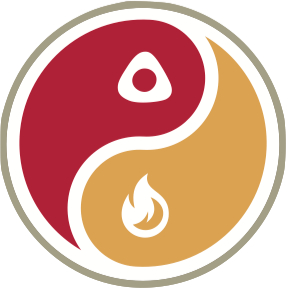More Vegetable Depletion Studies
This is just a quick follow-up to the last post, Are vegetables good for you?. In it I mentioned a study, the only one I knew of that actually compared a diet containing almost no fruits and vegetables, to one high in fruits and vegetables containing antioxidants. It turns out that a subset of those authors went on to follow this with two more studies designed to elucidate this further.
The first, in 2003, No Effect of 600 Grams Fruit and Vegetables Per Day on Oxidative DNA Damage and Repair in Healthy Nonsmokers has an apt title. Here’s the abstract (emphasis mine):
“In several epidemiological studies, high intakes of fruits and vegetables have been associated with a lower incidence of cancer. Theoretically, intake of antioxidants by consumption of fruits and vegetables should protect against reactive oxygen species and decrease the formation of oxidative DNA damage. We set up a parallel 24-day dietary placebo-controlled intervention study in which 43 subjects were randomized into three groups receiving an antioxidant-free basal diet and 600 g of fruits and vegetables, or a supplement containing the corresponding amounts of vitamins and minerals, or placebo. Blood and urine samples were collected before, once a week, and 4 weeks after the intervention period. The level of strand breaks, endonuclease III sites, formamidopyrimidine sites, and sensitivity to hydrogen peroxide was assessed in mononuclear blood cells by the comet assay. Excretion of 7-hydro-8-oxo-2′-deoxyguanine was measured in urine. The expressions of oxoguanine glycosylase 1 and excision repair cross complementing 1 DNA repair genes, determined by real-time reverse transcription-PCR of mRNAs, were investigated in leukocytes. Consumption of fruits and vegetables or vitamins and minerals had no effect on oxidative DNA damage measured in mononuclear cell DNA or urine. Hydrogen peroxide sensitivity, detected by the comet assay, did not differ between the groups. Expression of excision repair cross complementing 1 and oxoguanine glycosylase 1 in leukocytes was not related to the diet consumed. Our results show that after 24 days of complete depletion of fruits and vegetables, or daily ingestion of 600 g of fruit and vegetables, or the corresponding amount of vitamins and minerals, the level of oxidative DNA damage was unchanged. This suggests that the inherent antioxidant defense mechanisms are sufficient to protect circulating mononuclear blood cells from reactive oxygen species.“
In other words, the conclusion is that in healthy people not exposed to high oxidative stress, extra exogenous antioxidants don’t improve things.
Oddly enough, the second, in 2004, The 6-a-day study: effects of fruit and vegetables on markers of oxidative stress and antioxidative defense in healthy nonsmokers has a less decisive title, and reports less decisively negative results, but judging by the description of the subjects and methods, it appears to be a different report on the same study. I’m not sure what to make of that. In the discussion they say:
“There is only limited evidence that antioxidants in fruit and vegetables influence oxidative stress or antioxidative defense in healthy subjects. In particular, the contribution of nonnutritive antioxidants to the prevention of oxidative damage is uncertain. The present biomarker-based, fully controlled human intervention study supports the hypothesis that nonnutritive factors, as well as nutritive ones, in fruit and vegetables may influence oxidative damage; however, the effect is not uniformly protective and depends on the molecular structure targeted by each biomarker. “
It’s not very conclusive.
I’m not going to try to interpret these studies right now, but I wanted to list them for those interested in the topic.
One problem that is interesting to me, though, is that they wanted to keep the macronutrient profiles of the groups the same. So they gave the non-fruits and vegetables group a drink containing some 60g of simple sugars. So one could argue that the fruits and vegetables group were at an advantage, because in addition to getting the simple sugars, they were getting factors that mediate sugars, that is, the fiber and possibly the antioxidants. While fiber is probably not beneficial in and of itself, if you are eating sugars, it can help moderate the damage. Similarly, if the conclusion from the first study is right, then the times you are going to see an effect of antioxidants, are the times when there is oxidative stress. Sugar consumption is one such candidate. So we’ve found ourselves in the situation of comparing apples to sugar.
On the other hand, if they had not done that, then they would be comparing diets either with different caloric intake, or with differing proportions of carbohydrates. Then if the group not eating so many plants had fared better, it would not have been clear if the effect came from a negative effect of plants, or from the lower calorie / carbohydrate intake. Although this might appear to be a sloppy design, it’s actually perfectly relevant, because it would address the question of whether or not it is warranted to tell people to replace some of their calories with more fruits and vegetables. This is a much more realistic question than whether we should tell people to get their carbohydrates from sugar-water as opposed to from fruits and vegetables.
Nonetheless, for some reason, the addition of fruits and vegetables to the diet is heavily advocated, even without such studies in existence.
